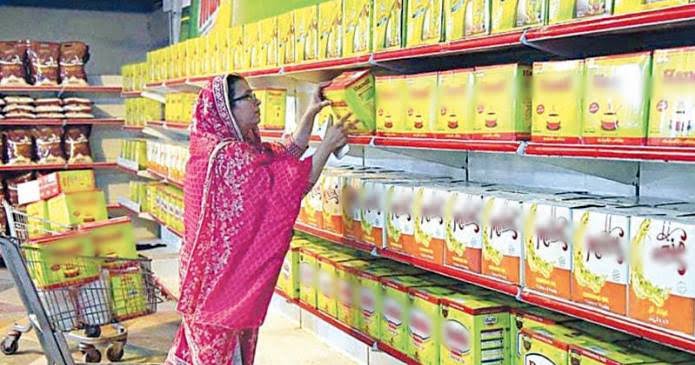In a notable development affecting household budgets across Pakistan, the prices of cooking oil and ghee have escalated by up to Rs80 per kilogram, reflecting a substantial rise in global commodity prices. According to ARY News, the increase comes amid a surge in palm oil prices on the international market, a primary ingredient in the production of cooking oil and ghee.
The cost of essential commodities like cooking oil and ghee has reportedly jumped between Rs20 and Rs80 per kilogram in recent weeks. This increase is largely driven by an unprecedented rise in palm oil prices, which have surged from $900 to $1,200 per ton—a steep increase of $300 in a relatively short period. The dramatic uptick in international palm oil prices has left local manufacturers grappling with higher raw material costs, leading them to adjust retail prices to manage the growing expenses.
Manufacturers Seek Tax Relief Amid Rising Production Costs
Amid rising costs, industry representatives are calling on the government for tax relief to mitigate the impact on consumers. The Pakistan Vanaspati Manufacturers Association (PVMA) Chairman, Sheikh Umer Rehan, highlighted that the government imposes an average customs duty of Rs9,500 per ton on the import of palm oil and palm olein. From the import stage to the point of sale, the total tax impact on ghee and cooking oil reaches Rs100 per kilogram or liter, of which Rs60 constitutes general sales tax.
Manufacturers argue that these high tax rates exacerbate the challenges posed by escalating raw material costs. They have appealed to the government for a reduction in taxes on cooking oil and ghee, seeking to keep these staple products within reach of the average consumer. “A reduction in tax could help stabilize prices for end-users, especially during these times of high inflation,” a representative from the industry remarked.
Global Market Dynamics Driving Local Price Hikes
The recent surge in cooking oil and ghee prices in Pakistan underscores the interconnectedness of global and local markets. The ongoing volatility in international palm oil prices is attributed to various global market dynamics, including supply chain disruptions, fluctuating demand, and regional production issues. As palm oil prices continue to fluctuate, Pakistan’s cooking oil and ghee industry faces growing challenges in maintaining affordable pricing.
Future Implications for Pakistani Consumers
The increase in cooking oil and ghee prices is expected to have far-reaching implications for household budgets across Pakistan. For families who rely heavily on these essential commodities, the price hike represents a significant strain, especially amid broader inflationary pressures impacting other essentials.
While consumers await potential government intervention in the form of tax cuts, industry representatives remain hopeful that some level of relief may be provided to offset the rising costs. However, without adjustments in the tax structure or a reduction in international palm oil prices, the upward trend in cooking oil and ghee prices may continue, affecting the affordability of these staple items for millions across the country.
The recent developments highlight the urgent need for policy responses to address the rising costs of essential goods, with a focus on ensuring consumer affordability amid a complex global market environment.


